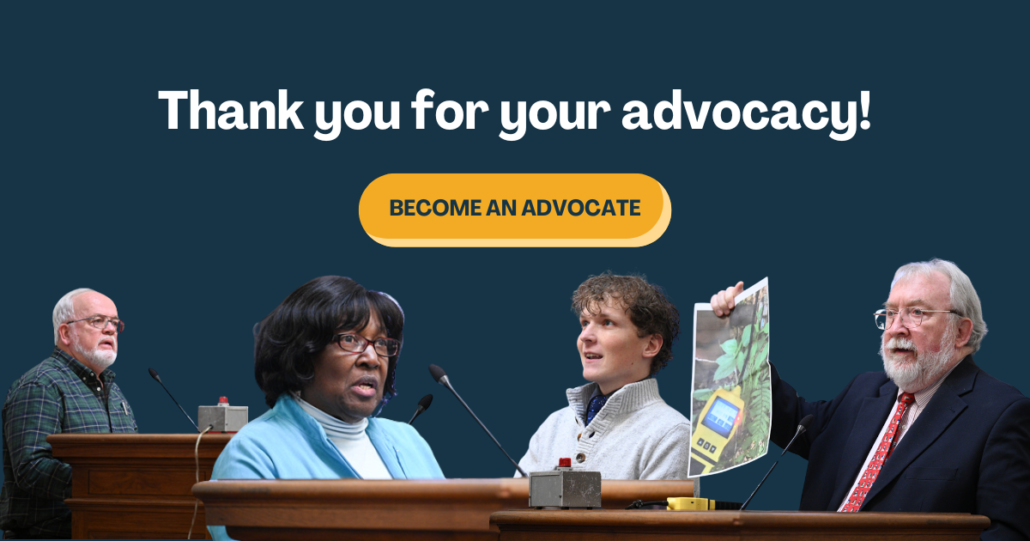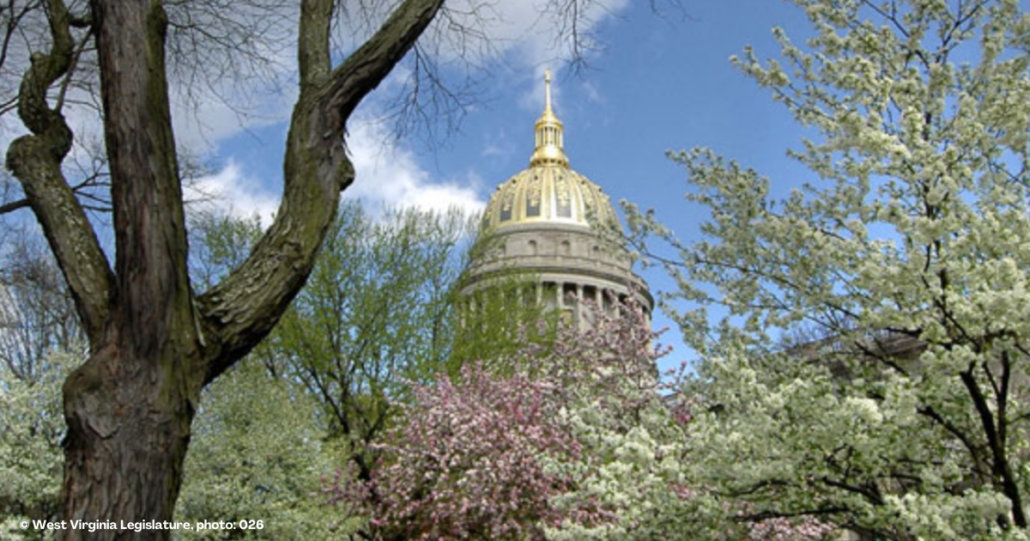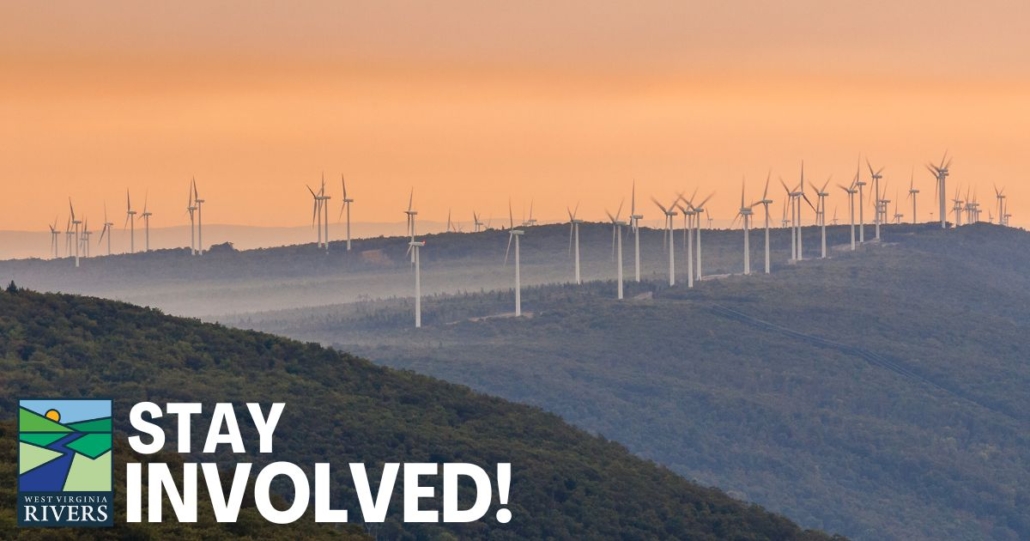WV Rivers 2024 Policy News
Important Victories and Opportunities for the Future
Photo of our Clean Water for All Mural, which was on display in the Rotunda of our State Capitol during the beginning of the Legislative Session, reminding our leaders of our shared vision for a clean water future. (WV Legislative Photography, Photo by Perry Bennett.)
The 2024 WV Legislative Session has drawn to a close, and we have much to celebrate! Our entire team extends our thanks for your advocacy, which, despite all odds, was successful in defending our public lands and the health of our communities!
Nearly 700 of you sent messages urging the rejection of SB 688 to the House Committee on Government Organization. SB 688 could have opened all public lands to widespread timbering and undefined “economic development.” Your advocacy worked—the committee never took up the bill, so our public lands are preserved!
Even more people showed strong opposition to HB 5018, joining us on the floor of the House to ask leaders to reject this bill that threatened community air monitoring and public health. Your voice led to that industry-backed bill failing – congrats!
Our advocacy is based on one thing: working for a better West Virginia for all. You make it all possible. Thank you for being part of this coalition.
For clean water, conserved public lands, and healthy communities,
WV Rivers Coalition
Together, We Made a Difference
Images of advocates speaking at the public hearing on HB 5018 this legislative session. (WV Legislative Photography, Photo by Perry Bennett.)
For 60 days, Senators and Delegates considered over 2,200 bills and passed about 280 bills. Both the ABC and Mountain State Spotlight have media recaps of bills that passed and some that did not.
WV Rivers and our partners with WV Environmental Council focused on solar energy, oil and gas well plugging reforms, conserving our public lands, and flood resiliency.
Together, we stopped some bills that were detrimental to West Virginians’ public lands, waters, and health.
Attempts to disregard private landowner decisions regarding conservation easements or to permit industry polluters to avoid their responsibilities to cap oil and gas wells did not pass. Other bills were amended and improved. Private forest owners with conservation easements to protect our environment may still qualify for professional management plans and real property tax breaks.
Some important measures did not pass this session. We see this as an area of opportunity for us to work for a better West Virginia for all. Read below as we set out important priorities for the coming year.
There is Still Work to Be Done!
WV State Capitol during Spring. (West Virginia Legislature, Photo: 026.)
Advocacy is year-round. In the coming months, we will watch the Interim Legislative Sessions for opportunities to discuss your priorities: clean water, solar power, orphan well prevention, and wild and wonderful public lands – and prepare for the 2025 legislative session, which we know will involve consideration of revisions to our state water quality standards.
Unfortunately, funding for the West Virginia Flood Resiliency Trust Fund failed to make the final budget.
West Virginia’s mountainous terrain and thousands of rivers make the state particularly susceptible to flooding, especially as climate change impacts flooding risks. Created in the last session, the Fund has zero dollars available to help West Virginians deal with the effects of flooding in the Mountain State. The lack of funds prevents the State Resiliency Office from dealing with these issues. We are hopeful that an anticipated May special session on budget issues will result in funding for the Flood Resiliency Trust Fund.
This year’s legislature did not address some important issues. We will continue to advocate for:
- Orphan Oil and Gas Well Prevention Act to assure that the driller or operator should be required to provide the resources to plug the well.
- Community Solar to allow individuals, businesses, churches, and communities (and our environment) to benefit from solar energy without requiring the installation of solar panels on an individual basis.
- Net Metering allows consumers with solar power to receive full retail credit for excess electricity delivered to the utility for others to use.
Several public lands and recreation ideas merit further study by all interested stakeholders. We remain committed to nature-based, non-motorized access and recreation in our public lands. Exploring opportunities for Rail Trails, development of a West Virginia Recreational Trails system, public access to rivers from new or renovated bridges, and development of our flatwater trail systems may help expand our public lands and recreational opportunities in a way that is consistent with protecting these precious resources for West Virginians, visitors, and our children.
We will continue to advocate for these good ideas (and oppose bad ideas!), keep you informed, and ask you to join in these efforts.
Ways to Stay Involved
Image of windmills in West Virginia. (Photo by Kent Mason.)
Meeting with your Senators and Delegates when the legislature is not in session is a way to be a year-round advocate for clean water, a healthy climate, commonsense energy policies, watershed-scale restoration, or our wild and wonderful public lands.
The District Advocate program is an opportunity to meet with your representatives in a local setting. Like the idea? We invite you to sign up as a District Advocate to bring your concerns directly to your local Senators and Delegate.
Want to increase your advocacy skills? Check out these resources from WVRC, WVEC, or WV Trails.
Your advocacy makes a difference!








